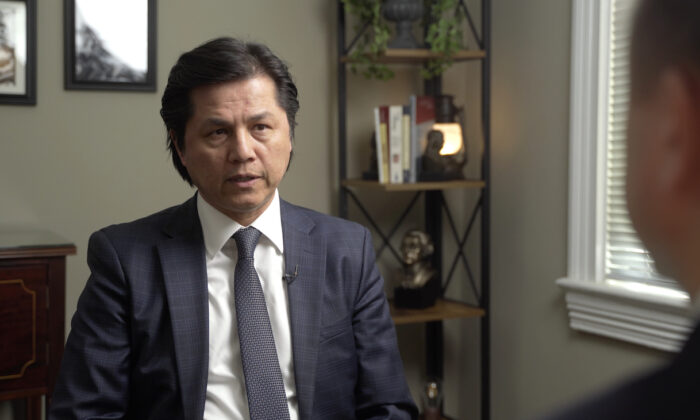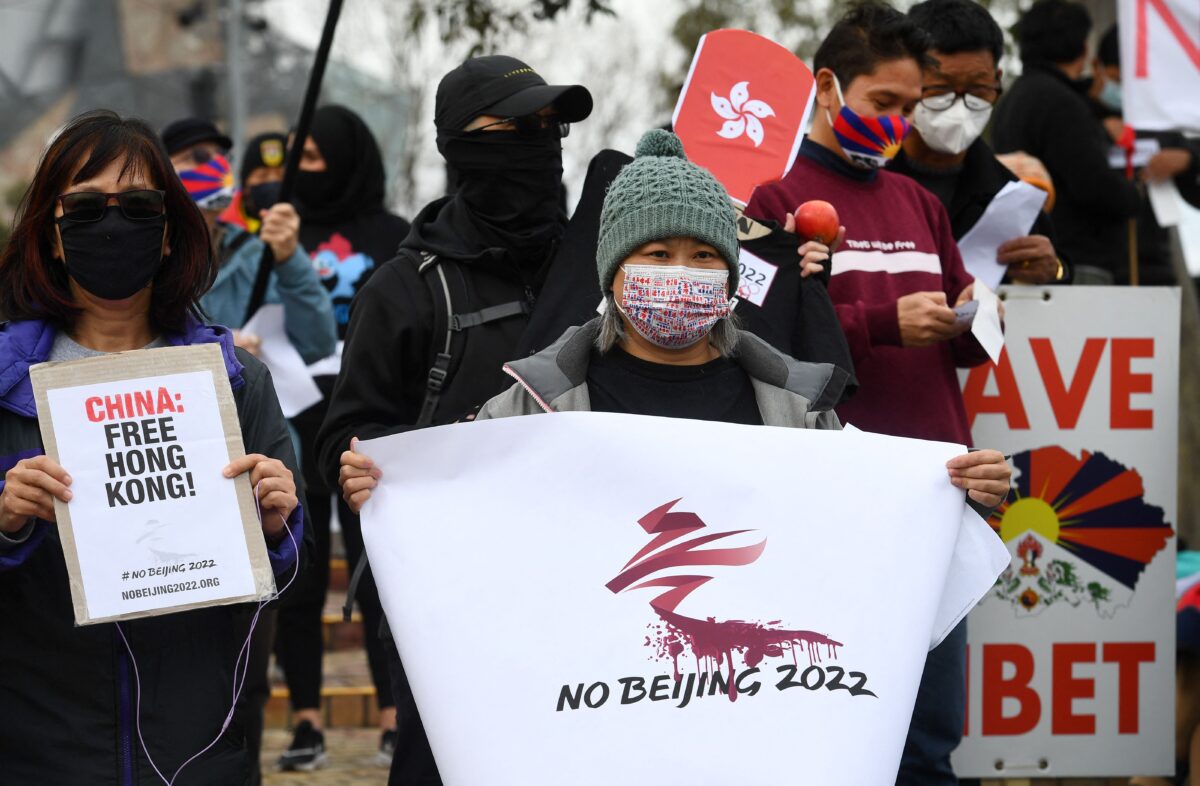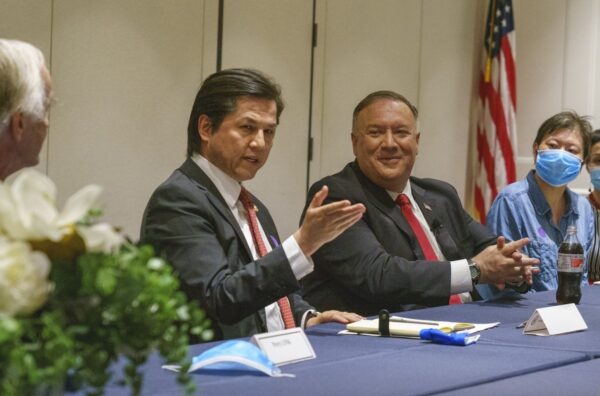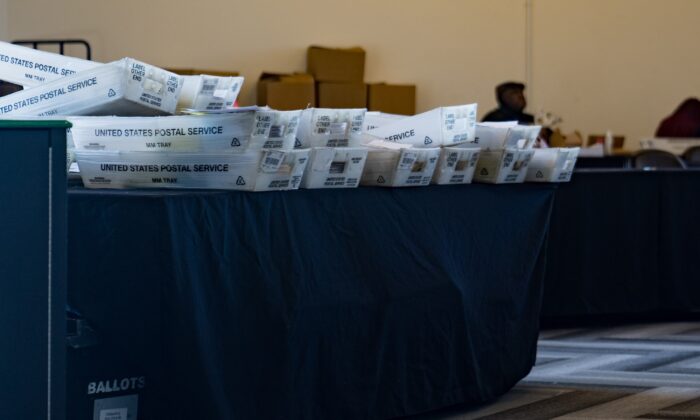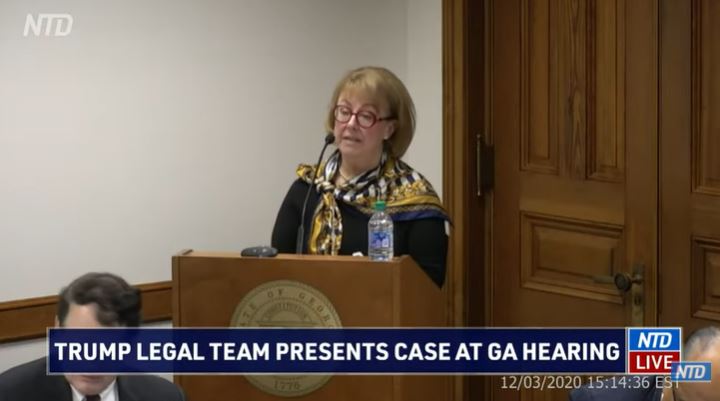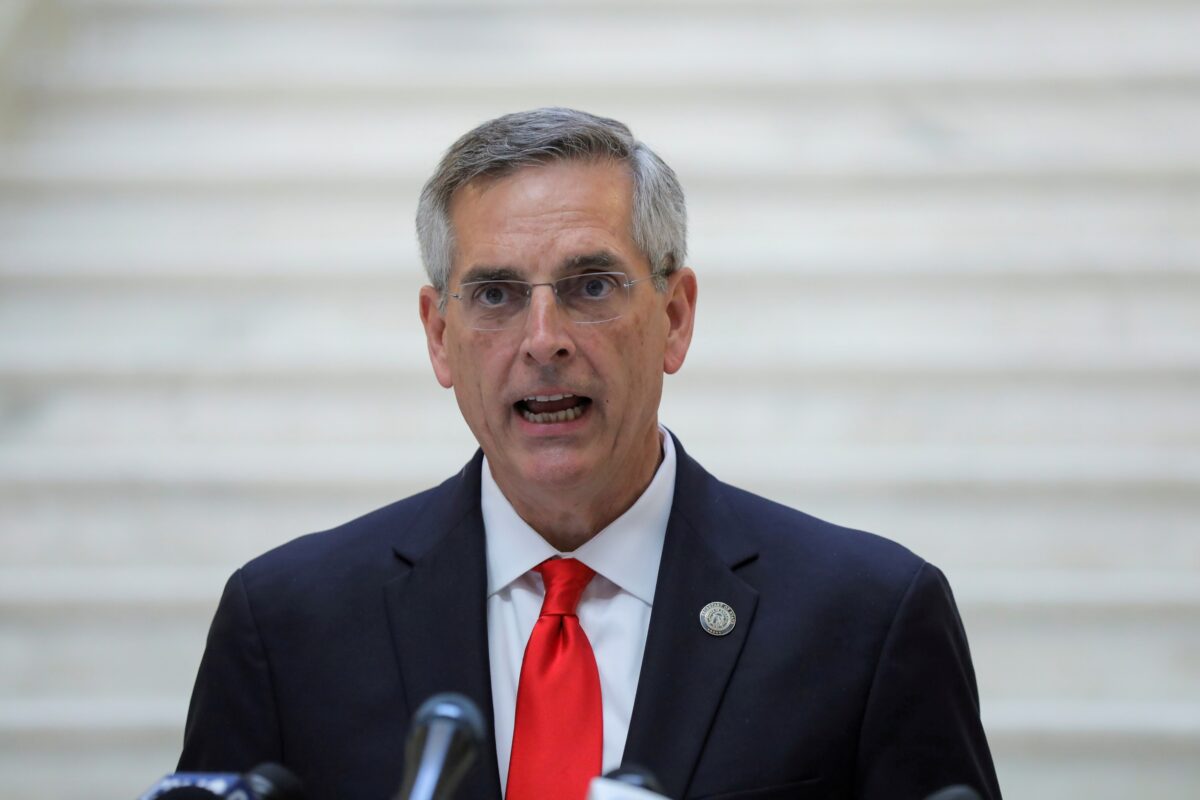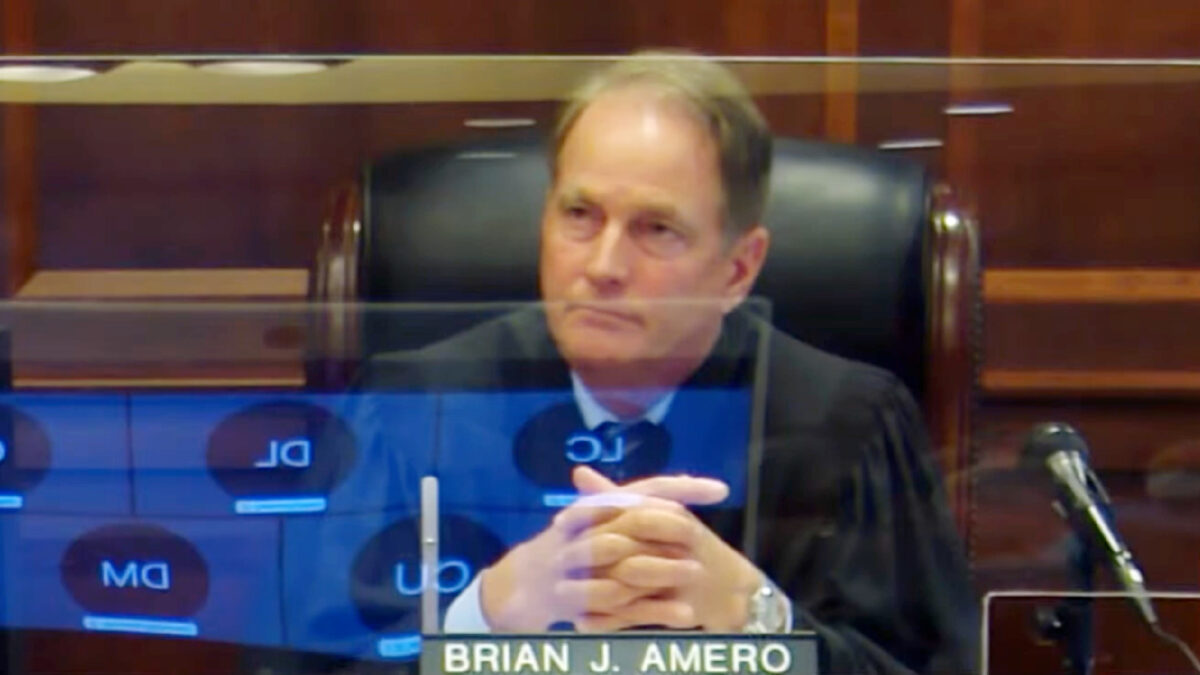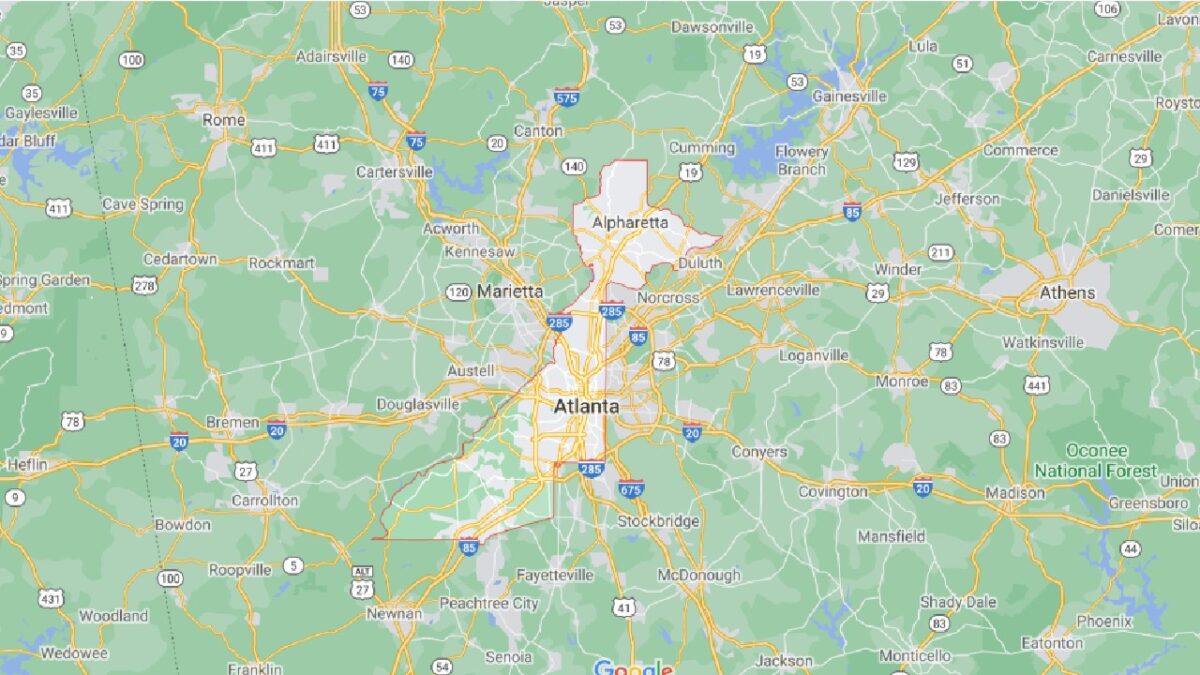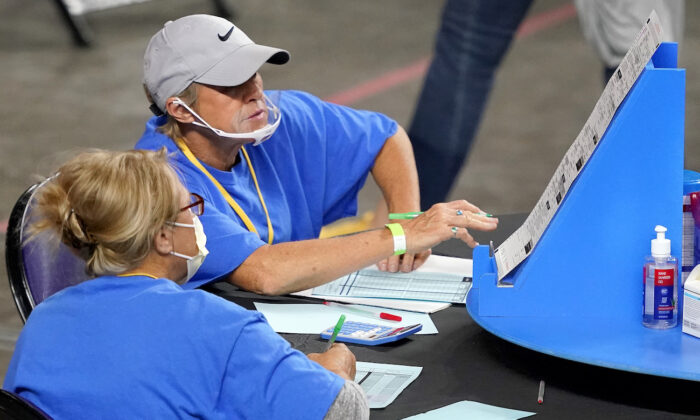
Falun Gong practitioners at candlelight vigil remembering victims of the 22 years persecution in China at the Washington Monument on July 16, 2021. The characters for “Truthfulness, Compassion, Tolerance,” the principles taught by the spiritual practice appear at the front. (Edward Dai/The Epoch Times) Thinking About China
John Mac Ghlionn July 20, 2021 Updated: July 20, 2021 biggersmallerPrint
Commentary
The abuses taking place in China’s Xinjiang Uyghur Region (XUR) have been well documented. With forced labor and horrific stories of sexual abuse, the Uyghur story is an important one, and it needs to be told.
Another important story that needs to be told involves the persecution of Falun Gong practitioners. Twenty-two years ago today, the Chinese Communist Party (CCP) sought to eliminate the spiritual practice of Falun Gong in China. In an attempt to eliminate the peaceful practice, the Chinese regime launched a brutal campaign of religious persecution, one that continues to this day.
For more than two decades, Falun Gong practitioners have experienced unspeakable and intolerable acts of human rights abuses, with a number of practitioners being subjected to arbitrary detention, torture, forced labor, and death threats. Thousands have died at the hands of the CCP. This short piece remembers the brave men and women who have been punished and beaten, persecuted and prosecuted. It also pays respect to those who continue to spread the gospel of peace, love, and unity.
Fallen but Not Forgotten
But first, we must ask: Why does the Chinese regime fear Falun Gong, a spiritual practice that involves slow-moving exercises and meditation and places great emphasis on the importance of human decency? In China, where tyranny and lies reign supreme, there’s little room, if any, for honesty, empathy, and tolerance. In other words, there’s no room for Falun Gong.
Since July 20, 1999, the CCP has launched countless smear campaigns against Falun Gong practitioners. In “Wild Grass: Three Portraits of Change in Modern China,” Ian Johnson wrote that the CCP’s claims against the group don’t carry any truth whatsoever. Contrary to the propaganda promulgated by the Chinese regime, Johnson sets the narrative straight. Falun Gong members “marry outside the group, have outside friends, hold normal jobs, do not live isolated from society, do not believe that the world’s end is imminent, and do not give significant amounts of money to the organization,” he wrote.
This, however, hasn’t stopped the CCP from spreading malicious lies about Falun Gong. As writer James Griffiths noted, since 1999, the CCP has launched a “concerted propaganda campaign” to portray the peaceful movement as an “evil cult.” Within a month of its ban, “almost 400 articles were published in state media attacking Falun Gong.” Of course, the response has gone far beyond harshly worded editorials.
Hundreds of thousands of Falun Gong practitioners have been sent to “re-education” camps. People wonder if hell is real. It is, and it exists here, on Earth. Hell comes in the form of a Chinese “re-education” facility. As Amnesty International reports: “So-called ‘re-education camps’ are places of brainwashing, torture, and punishment that hark back to the darkest hours of the Mao-era, when anyone suspected of not being loyal enough to the state or the Chinese Communist Party could end up in China’s notorious labor camps.”
In these facilities, there’s little, if any, emphasis on actual education. Instead, those “who resist or fail to show enough progress face punishments ranging from verbal abuse to food deprivation, solitary confinement, beatings and use of restraints and stress positions.” The depravity experienced at these camps knows no limits. A number of unfortunate souls, “unable to bear the mistreatment,” have instead taken their own lives.

Can you blame them? For a Falun Gong practitioner who finds himself incarcerated, the chances of escape are minimal. Over the past 22 years, thousands of practitioners have been tortured to death in this campaign of terror. In Xinjiang, as I type this piece, genocide is occurring. But, with Falun Gong members, genocide has been occurring for more than two decades. In 2009, lest we forget, in both Spain and Argentina, five senior CCP officials were indicted for committing acts of genocide and torture on Falun Gong practitioners. More shockingly, tens of thousands of innocent practitioners have been murdered by the CCP. Many of these people have had their organs harvested.
In 2013, testifying on the abuses being carried out against Falun Gong members, Ethan Gutmann, an American writer, researcher, author, and a senior research fellow in China Studies at the Victims of Communism Memorial Foundation, said, although there was “no legal way” for Falun Gong practitioners to be executed, he compared the persecution faced by Falun Gong practitioners in China to “the Inquisition.” He warned that innocent people “just disappear.”
Since Gutmann’s chilling testimonial, the disappearances haven’t stopped. Far from it. In 2018, a panel of lawyers and experts, many of whom had been researching China-based atrocities for years, said they had “clear evidence forced organ harvesting” was still occurring, and that imprisoned Falun Gong members appeared to be “the principal source” of “organs for forced harvesting.”
Why were these people butchered and brutalized? Why are Falun Gong members, to this very day, singled out for the most inhumane punishments imaginable? Because they dared to speak the truth; they dared to promote the ideas of peace and unity; and they dared to question the brutal motives of the Chinese regime. Today, let’s remember the brave men and women who have lost their lives and the brave souls who continue to fight the good fight. Those who have left this world may have fallen, but they aren’t forgotten.
John Mac Ghlionn is a researcher and essayist. His work has been published by the likes of the New York Post, Sydney Morning Herald, The American Conservative, National Review, The Public Discourse, and other respectable outlets. He’s also a columnist at Cointelegraph.
Views expressed in this article are the opinions of the author and do not necessarily reflect the views of The Epoch Times.








